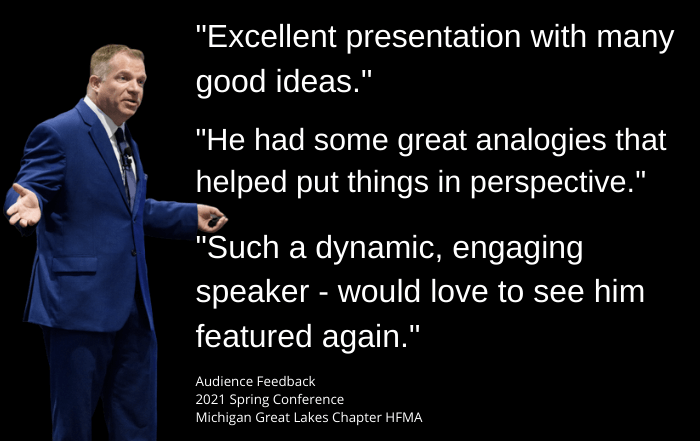 To improve performance and retention in your business, employees need to stop working on vacation. Too many now look at their time off as work-lite, rather than an opportunity to rest and recharge.
To improve performance and retention in your business, employees need to stop working on vacation. Too many now look at their time off as work-lite, rather than an opportunity to rest and recharge.
New research from Qualtrics reveals some disturbing trends. Some of the findings include:
- 49% of employed Americans say they work at least one hour a day while on vacation
- 24% work at least three hours a day
- 31% say they are expected to answer phone calls or texts on vacation
- 27% say they are expected to respond to emails
- 27% say they do not feel rejuvenated after taking time off
The pressures of work will always exist but they shouldn’t invade your vacation. In successful organizations, you’ll find an understanding that time off produces good results when someone returns to the job.
Even the best performing machine requires some downtime, so it can be maintained or repaired. You don’t try to use it while it’s being fixed.
Yet when it comes to people, too many of us feel that work should never stop. This will not help work-life balance. While there are some challenges with unplugging, there are also some strategic steps you can take to make sure you stop working on vacation:
Identify Backups
Unexpected work may come up during someone’s vacation but is that person the only one who can perform the task? Is there another employee who can do the work? This is better than putting out a vacation interrupting call for help or allowing important tasks to pile up on a desk.
A backup is likely the person who would assume the duties if the vacationing employee had to leave the job suddenly due to a family emergency or some other crisis. These emergencies happen, so why not have a process in place for vacations, as well.
It’s important everyone has a backup and there are periodic trainings on the required duties. You can’t expect someone to perform a job they don’t know or understand a critical password is changed every three months. Also, it helps if it’s a reciprocal arrangement.
The vacationing employee must make sure work is caught up before the departure. There should be no dumping of undesirable tasks on the backup.
And it is critical that everyone knows that you’ll be out of town and who is backing up your job. For the plan to work, this can’t be a secret.
Limit Messages
Within an organization, can people limit the number of emails sent to a vacationing employee? Let’s say someone is out of the office for ten business days and one colleague sends two messages per day. That’s 20 emails filling the inbox from one person.
What if those daily messages could be combined into a weekly email? That will reduce the number of messages from 20 to 2, which is much more manageable.
While it takes more time and thought to put together a weekly summary email, you’ll make life easier for the returning employee and likely receive a faster response to any issues. No one likes to return to an exploding inbox, which leads many to check their email while on vacation.
Set the Tone
Come up with a vacation communication policy that can be easy shared and respected by employees. Everyone needs to buy into it because if a couple of people go rogue and work while on vacation, then it will soon become the norm for all. This may be your biggest challenge.
It is in your best interest to make sure people stop working on vacation. According to the research, 58% of U.S. workers say their job is the main source of their mental health challenges.
You don’t want people burned out and contributing to a talent drain, when they leave your organization.
Help Create a Smooth Reentry
While a vacation shouldn’t stop business, make sure you’re not overwhelming the returning employee. Their schedule should have some free time for catching up. Don’t set important meetings for five minutes after they walk in the door.
Perhaps the first meeting should be with backups and other supervisors to go over any issues that may have emerged. These things go on the calendar before the vacation.
The Big Picture
Vacations should be enjoyed and allow employees to recharge and feel good about going back to work. Vacation frustration shouldn’t be part of the job.






